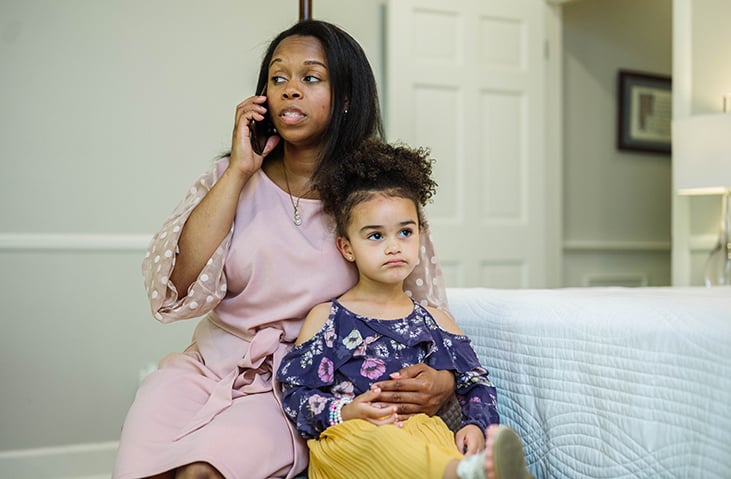

May 16 2025
Bullying: Establish a Safe Environment at Home


Summary
Help stop bullying by making your home the launchpad for change.
Bullying is no longer confined to school hallways or playgrounds—it’s a pervasive issue that invades homes, digital spaces and children’s emotional well-being.
While schools play a vital role in addressing bullying, the home remains the foundation of prevention. Parents and caregivers are in a powerful position to model healthy relationships, build emotional resilience and provide the psychological safety children need to grow into confident, compassionate individuals.
The Many Faces of Bullying
Bullying can be physical (hitting, pushing), verbal (name-calling, threats), social (exclusion, rumors) or digital (cyberbullying).
In today’s tech-driven world, cyberbullying is particularly insidious because of its wide reach and permanence. Hurtful messages, embarrassing images and online harassment can circulate quickly and publicly, often without adult supervision.
Some children may be more vulnerable to bullying than others. Traits such as being introverted, having few friends, or being perceived as “different” due to appearance, disability, race or gender identity can make a child a target.
The Home as a Safe Haven
According to StopBullying.gov, one of the most powerful ways to prevent bullying is by creating a supportive and communicative home environment.
When children feel safe at home—physically, emotionally and mentally—they’re more likely to talk openly about their experiences and seek help when needed.
The American Psychological Association also emphasizes the importance of helping children build self-esteem, develop empathy and learn how to manage emotions—all of which can reduce both the likelihood of being bullied and becoming a bully.
Proactive Parenting
Several anti-bullying organizations offer tips to help parents prevent and address bullying. Here are some key strategies:
- Keep the lines of communication open. Ask open-ended questions about your child’s school life, friendships and online activities. Children who feel heard and validated are more likely to confide in you.
- Model positive behavior. Demonstrate kindness, empathy and conflict resolution in your daily life. Children often mirror the behaviors they observe in adults.
- Encourage social engagement. Support your child’s involvement in hobbies, sports or clubs. Positive peer interactions and structured activities can boost self-confidence and create a sense of belonging.
- Establish boundaries around technology. Monitor your child’s screen time and online activity. Teach them responsible digital behavior and encourage them to speak up if they encounter harmful content or interactions.
- Teach assertiveness, not aggression. Help your children practice standing up for themselves and others in respectful ways. Role-playing scenarios at home can build confidence and prepare them for real-life situations.
- Promote a culture of respect. The Greater Good Science Center encourages teaching children how to name, understand and regulate their emotions. This also helps them recognize and respond to the emotions of others.
Recognize the Signs & Take Action
Despite your best efforts, bullying may still occur. Common warning signs include a sudden withdrawal, drop in academic performance, anxiety, difficulty sleeping, unexplained injuries or lost belongings.
If you suspect your child is being bullied:
- Document the incidents. Keep records of what happened, when and who was involved.
- Engage the school. Reach out to teachers, counselors or administrators. Schools are required to have bullying policies in place.
- Follow up. If the issue isn't resolved, consider escalating the matter or seeking support from advocacy organizations or counselors.
Cultivate a Bully-Free Future
Prevention begins at home. A safe home is one where children feel respected, understood and unafraid to express themselves. This environment becomes the blueprint for how they treat others and expect to be treated.
Ultimately, it’s not a one-time conversation but rather an ongoing commitment. By reinforcing a home environment where empathy, courage and respect thrive, we empower our children to navigate the world with confidence and kindness.
Change Starts with Us
The phrase “It takes a village to raise a child” has never been truer. But the heart of that village is the home. Whether we’re teaching our children how to set boundaries, defend their peers or advocate for themselves, we must remember that small, everyday actions build resilient futures.
So, let’s speak up, show up and stand strong—because when homes are safe, children are stronger.


Ja'Lahya Stokes, LMSW
Don't battle depression, anxiety or other mental health issues alone. If you need help living life again, we can help.

Subscribe to Our Newsletter
Like this content and want to get more? Sign up for True North, the health and wellness newsletter from North Mississippi Health Services!

Subscribe to Our Newsletter
Like this content and want to get more? Sign up for True North, the health and wellness newsletter from North Mississippi Health Services!

Nurse Link®
Not sure if you need Urgent Care or the ER? Call 1-800-882-6274 anytime to speak directly to a registered nurse and get immediate answers. Using computerized medical protocols, nurses direct callers to the most appropriate treatment. Our nurses are available 24 hours per day, seven days per week.